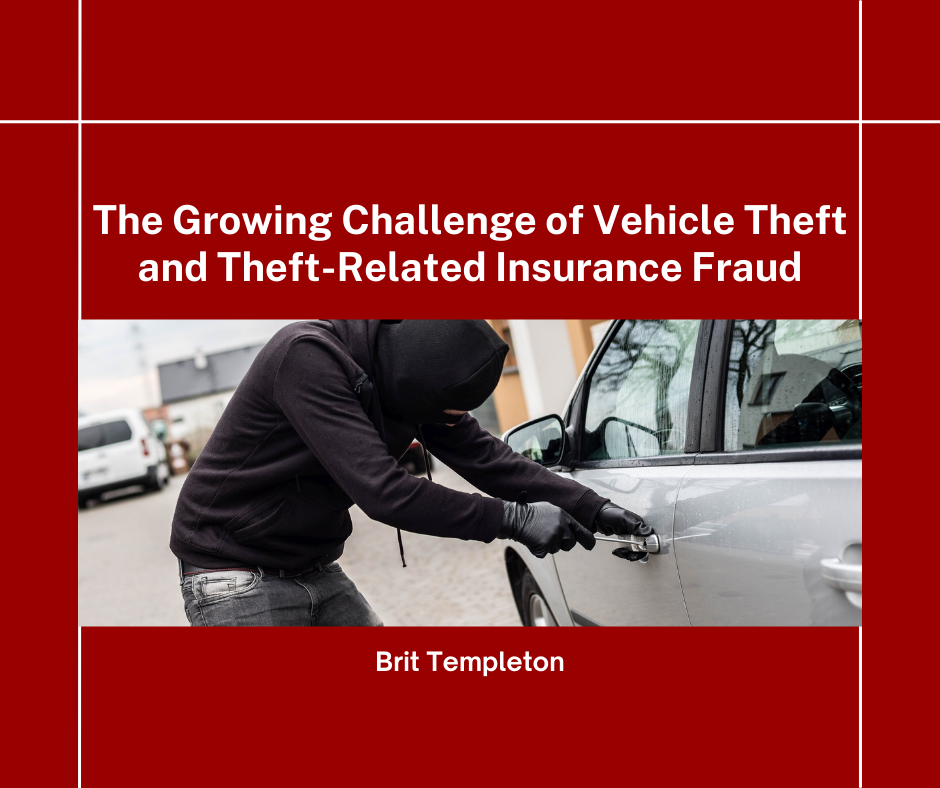Automobile theft is always evolving, thus creating a very challenging atmosphere for companies and agencies that are tasked with investigating and handling vehicle theft and claims of vehicle theft. Automobile thieves are pivoting to new and sophisticated methods for theft, including smart keys, cloning vehicles, utilizing cell phone applications to hack into a vehicle, and even using false identities to purchase expensive vehicles. Motor-vehicle theft has increased in recent years, and last year alone, more than 1 million vehicles were stolen nationwide.[1]
While the occurrence of motor vehicle theft is on the rise, the number of theft-related insurance fraud cases are also growing. Insurance fraud is a deliberate deception perpetrated against or by an insurance company or agent for financial gain. Fraud may be committed at different points by applicants, policyholders, third-party claimants, or professionals who provide services to claimants. Staged crashes, false or overblown reports, and faking information are just some of the instances where harm is caused to not only insurers, but to consumers as well. Several types of information failures and fraudulent practices drive costs up, such as unrecognized drivers, underestimated mileage, violations/accidents, and false garaging to lower premiums. While not always a result of malicious or conscious actions, premium leakage creates problems for consumers, too—as much as 14 percent of all personal auto premiums can be attributed to the cost of covering premium leakage.[2] According to a 2022 study conducted by various member-organizations of The Coalition Against Insurance Fraud, the cost of Property and Casualty Fraud in the United States is $45 billion per year.[3]
There is no foolproof way to spot or prevent incidents of theft-related insurance fraud. However, there are a few “best practices” which can be employed when handling and investigating potential instances of fraud. Insurers should always practice good data hygiene – verifying driver’s license numbers, capturing correct and complete driver details, reviewing title history for an allegedly stolen vehicle, and paying attention when a vehicle’s VIN is flagged. Insurance carriers should establish and maintain properly trained special investigation units (SIUs) to help identify and investigate suspicious claims.
It is, of course, of upmost importance to honor duties owed to insureds under any insurance policy. However, as discussed above, theft-related insurance fraud is not only a financial burden on the insurer, but also on their insureds. Proper investigation and handling of claims of automobile theft is paramount to curbing this growing problem, for the benefit of both insurers and insureds.
The attorneys at Thomas Rubin & Kelley, PC have significant experience with evaluating claims of vehicle theft, and with providing appropriate legal guidance to insurers. If you have any questions regarding the rise of theft-related insurance fraud, or if you require any assistance as to your Arizona claims, please do not hesitate to contact Brian Rubin (brubin@trkfirm.com) or Michael Kelley (mkelley@trkfirm.com).

